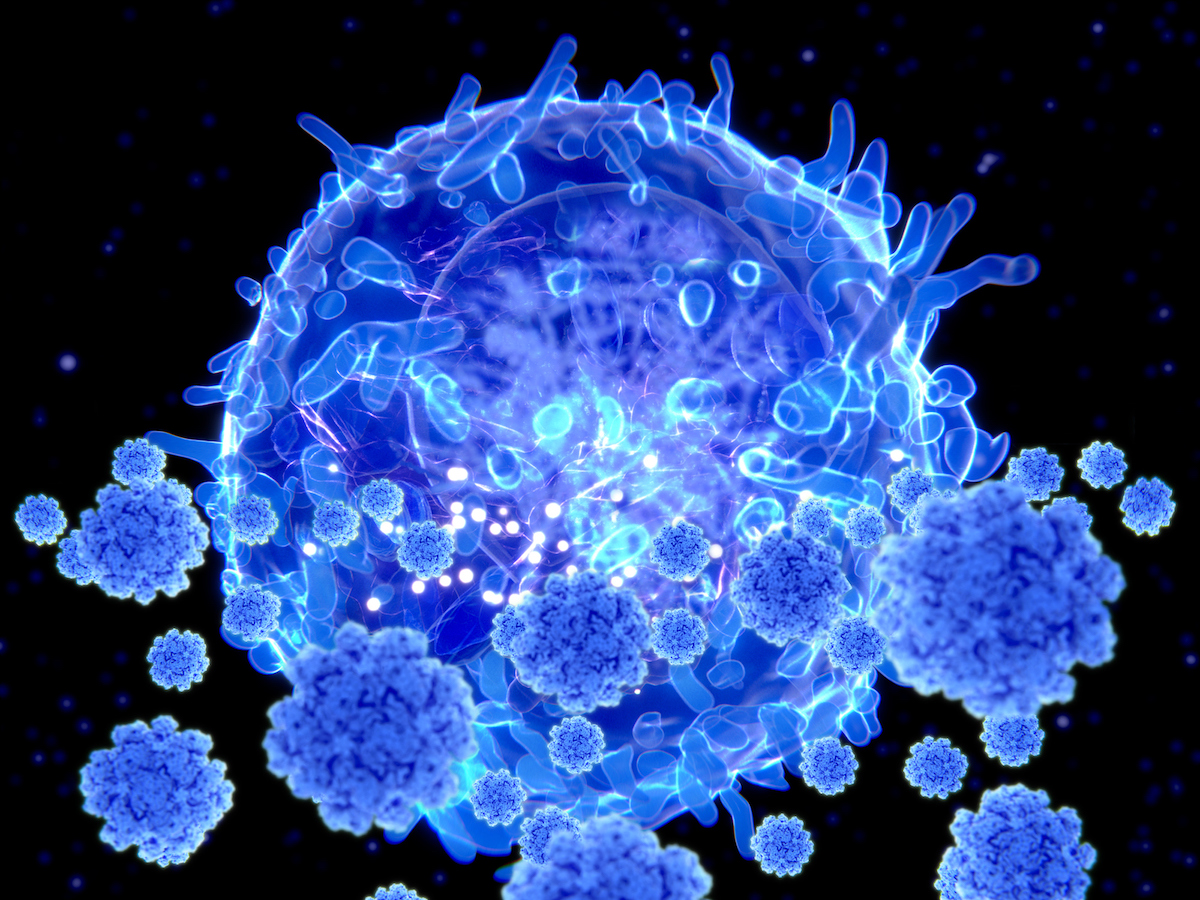<< Back
What Are T Cells And How Might They Help You Avoid, or Survive, Omicron?

December 09, 2021
In this season of thankfulness, let us not forget the tiny white blood cells called T cells that help our immune system reject foreign substances in our body. But can they help fight off a formidable antigen like Omicron?
Already, it’s assumed two doses of Pfizer-BioNTech’s COVID-19 vaccine aren’t enough. Lab study results released by Pfizer indicate it will take three doses — and possibly a fourth dose — of their vaccine to produce a similar level of neutralizing antibodies to Omicron as two doses produced against the original virus and subsequent variants.
Moderna, on Dec. 20, said preliminary lab-test data showed its 50-microgram booster produced a 37-fold increase in neutralizing antibody levels against Omicronto compared to the original two-shot dosage. A second 50-microgram booster resulted in an 83-fold increase in neutralizing antibody levels. (Johnson & Johnson has not yet released test results on its vaccine.)
But even as antibody levels drop after exposure to Omicron, our T cells don’t forget. They retain a memory of previous COVID-19 infections, building their own little databank that can help generate an immune response when a similar, yet highly mutated, antigen like Omicron enters the body.
“We have to remember,” says Dr. Ulysses Wu, Hartford HealthCare’s System Director of Infection Disease and Chief Epidemiologist, “that the vaccines work, not only in the production of antibodies, but in stimulation of our B and T cells, which are our second and third lines of defense.”
B cells, or B lymphocyte, are also white blood cells developed in the immune system from bone marrow. With T cells, or T lymphocyte, they influence how the immune system responds to an antigen like SARS-CoV-2, the virus that causes COVID-19.
This long-term memory, achieved through either vaccination or an infection, could determine the severity of the next wave of infections because Omicron is up to 10 times more transmissible than the now-dominant strain, Delta. T cells remain on standby until identifying a specific antigen. They then bind to the antigen’s surface. (In the image above, a T cell targets SARS-CoV-2 virus particles.)
T cells also respond to allergens and tumors. In infants, they develop immunity against common pathogens or antigens while building long-term memory. In adults, they maintain normal levels of protection and help reject common antigens. T cell efficiency diminishes in older people, leaving the immune system more vulnerable to attack.
“A booster is important,” says Dr. Jo Anne Passalacqua, an infectious disease specialist at St. Vincent’s Medical Center in Bridgeport. “This just says if you were thinking about (a booster) in the next couple of weeks, go do it now.”
And if you manage to avoid, or survive, COVID-19, remember to also thank your lucky T cells.
This story was updated Dec. 21.